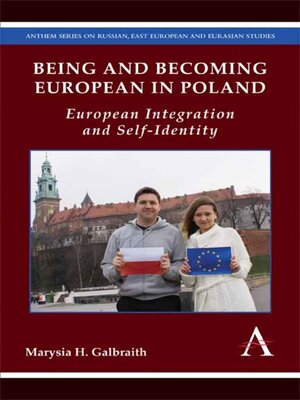Being and Becoming European in Poland
ebook ∣ European Integration and Self-Identity · Anthem Series on Russian, East European and Eurasian Studies
By Marysia H. Galbraith

Sign up to save your library
With an OverDrive account, you can save your favorite libraries for at-a-glance information about availability. Find out more about OverDrive accounts.
Find this title in Libby, the library reading app by OverDrive.



Search for a digital library with this title
Title found at these libraries:
| Library Name | Distance |
|---|---|
| Loading... |
Overthrowing communism in 1989 and joining the European Union in 2004, the Polish people hold loyalties to region, country and now continent – even as the definition of what it means to be 'European' remains unclear. Paying particular attention to those who came of age in the earliest years of the neoliberal and democratic transformations, this book uses the life-story narratives of rural and urban southern Poles to reveal how 'being European' is considered a fundamental component of 'being Polish' while participants are simultaneously 'becoming European'. Ultimately, this study demonstrates how the EU is regarded as both an idea and an instrument, and how ordinary citizens make choices that influence the shape of European identity and the legitimacy of its institutions.
|Overthrowing communism in 1989 and joining the European Union in 2004, the Polish people hold loyalties to region, country and now continent – even as the definition of what it means to be 'European' remains unclear. This book uses the life-story narratives of rural and urban southern Poles to reveal how 'being European' is considered a fundamental component of 'being Polish' while participants are simultaneously 'becoming European'.
Close attention to the individual lives of Poles allows the author to identify cultural patterns and grasp the impact of the EU on its member states, paying particular attention to how the EU has affected the life experiences of Poles who came of age in the earliest years of the neoliberal and democratic transformations. In exploring what it means to be Polish by tracking these parallel processes of change, the author traces Poland's path from state socialism to European integration and Polish identities as they are reinscribed, revised and reinvented in the face of historic, political and economic processes.
Ultimately, this study demonstrates how the EU is regarded as both an idea and an instrument, and how ordinary citizens make choices that influence the shape of European identity and the legitimacy of its institutions.







